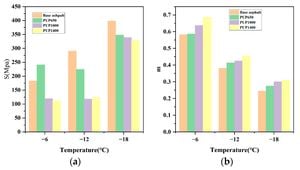The role of positively charged specificity site within cyclin B1 is pivotal for maintaining fidelity during cell division, impacting mitotic processes such as spindle function and APC/C activation.
A recent study sheds light on the cellular mechanisms driving the complexity of mitosis, pointing to the significance of cyclin-dependent kinases (CDK) as they blend with specific cyclin partners to facilitate orderly cell division. Within this framework, the study highlights how the pocket of cyclin B1—specifically its positively charged binding site—plays a key role not just as a mere structural feature, but as an operative site for phosphorylation events imperative for correct mitosis.
The integrity of this pocket is found to be fundamental for attaching to phosphorylated substrates, driving timely cellular events during cell division. Researchers utilized HeLa cells to explore how mutations within this site implicate severe delays during the cell's transition to the anaphase stage, particularly when examining the activation of the Anaphase Promoting Complex/Cyclosome (APC/C)—a pivotal player ensuring proper chromosomal segregation.
Prior to this discovery, the mapping of substrate specificity within CDK/cyclin interactions remained elusive. The team employed advanced methodologies, including mutagenesis and live-cell imaging, ensuring they could isolate the functionality of cyclin B1’s phosphate-binding pocket (PBP) from other cellular processes. Their results showed HeLa cells expressing cyclin B1 with mutated pockets exhibited pronounced mitotic delays, failing to achieve proper spindle assembly and function, as indicated by the delayed onset of the pivotal stage involving the separation of sister chromatids.
These observations were substantiated by protein interaction assays, where they verified the diminished binding affinity between the mutant cyclin B1 and separase, the enzyme accountable for cleaving cohesins during mitosis. This confirmed the hypothesis wherein cyclin B1’s PBP is integral for engaging with specific phosphorylated substrates, thereby regulating the sequential phosphorylations necessary for mitotic progression.
While cyclin A and other simpler cyclins lack such specific pockets, resulting biochemical analyses revealed how this specialization could contribute to the nuanced regulation of APC/C—oversight over which is often compromised during uncontrolled cell proliferation seen in various cancers.
The researchers recommended more focused studies around the cyclin B1’s mechanisms, as any shortcomings here might manifest as erroneous chromosome behavior, underpinning potential genomic instability within cellular divisions.
Overall, they posit, "The integrity of cyclin B1’s phosphate-binding pocket is central for the correct function of the mitotic spindle affecting timely cell division." This study not only deepens our knowledge of cyclin functionality but provides avenues for potential therapeutic strategies targeting cell division gone awry.



